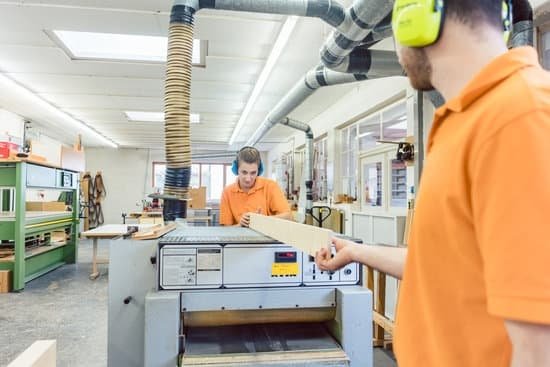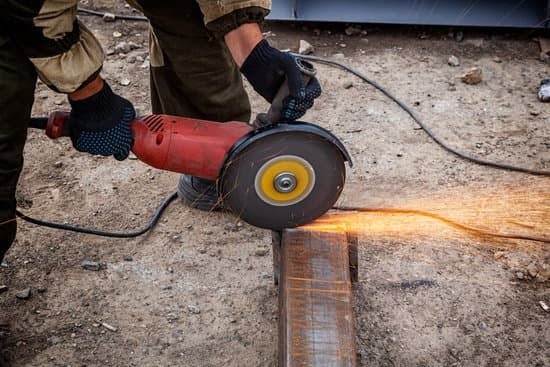Introduction
Hobby woodworking is the art of crafting items out of wood and other materials. It can be a great way to make your home look more beautiful and have a creative outlet for yourself. As much as one may think that hobby woodworking requires a lot of knowledge or machinery upfront, this doesn’t have to be the case. With the right tools and some practice, you can create stunning pieces quickly and easily.
With hobby woodworking, it is important to choose high-quality tools that are meant specifically for woodworking projects. These specific tools will help with performance, comfort, accuracy and precision. Popular hobby woodworking tools include hand saws such as hacksaws, coping saws and dovetail saws; chisels; drills; planes; sanders; joiners; clamps; routers and many others. For those who want to use power tools in their hobby woodworking projects, there are several available ranging in price from budget-friendly models all the way up to professional-grade machines which cost thousands of dollars. No matter what your budget may be, you can start small but produce results with high quality finish that will last for years.
If you’re new to the world of hobby woodworking, it is recommended that you take time studying about different types of lumber and techniques so you know how best to use your tools when crafting any type of project. Many online resources also provide invaluable tips from experienced craftsmen on proper technique and safety protocols as well as advice on which tool might work best for each kind of project or material. With research, practice, patience and good judgment anyone can become successful in their craft while working with wooden elements found around they home or at their local hardware store!
Types of Tools Used in Hobby Woodworking
Hobby woodworking requires a range of tools to make beautiful, intricate pieces. The most common tools used in hobby woodworking are saws, drills, routers and chisels.
Saws are probably the most basic tool of the lot, and come in many forms – all specifically designed for certain tasks. These include hand saws (used to cut curves and contours), jigsaws (bigger and more powerful than hand saws, making them ideal for tackling larger pieces of wood such as furniture parts), circular saws (used to rip-cut long sheets in a straight line) and band saws (which can be used for precision cuts).
Drills come in corded or cordless versions and are essential for drilling accurate holes. They come with various sized drill bits that can be used for different types of projects. For example a brad point bit is great for creating dovetails or mortise joints, while an auger bit is perfect for big holes in thicker materials.
Routers are invaluable tools when it comes to hobby woodworking, particularly with shaping complex designs. They’re often used to craft joints as they easily remove material at specific points, forming grooves and channels as needed. There’s also several types of router attachments that allow users to make edges on otherwise flat boards, such as rabbetting bits and cope jointing bits which create lip-shaped cuts.
Finally there are chisels – another vital tool due to their versatility in cutting detail work such as grooves or notches into softwood components like door frames or window frames. Chisels come in various sizes from narrow detailing too wide framing chisels depending on the project you’re working on. Each type can be set up with a mallet for heavier duty applications or a hammer for delicate tasks
Essential Power Tools for Hobby Woodworking
Hobby woodworking tools harness the power of electricity to quickly and easily create beautiful woodworking projects. Essential power tools such as a table saw, circular saw, router, drill press, miter saw, belt sander and jigsaw are must-haves for hobbyists serious about creating impressive wooden pieces. Other less frequently used but handy tools including planers, shaper cutters and scroll saws can expand your creative construction abilities even further. To complete any project with professional results you will also need strength enhancing accessories like a router table and lathe, a drill bit sharpener and various clamps. Special features like soft start motors prevent kickbacks resulting in ultimately safer operation when cutting wood.
Basic Hand Tools for Hobby Woodworking
Hobby woodworking can be an extremely rewarding and enjoyable undertaking. Many of the most essential items you will need in order to pursue this hobby are basic hand tools for cutting, joining and shaping raw lumber. Examples of these are saws, chisels, augers, planes, hammers and more. For instance, a saw is used to cut lumber into smaller pieces which can then be fitted together to create a specific shape or joint. Chisels come in varying sizes and shapes and can be used to create small detailed cuts as well as to carve designs into wood. Augers are typically used for drilling holes that are larger than those created by a drill bit or bit driver. Planes are available in various sizes that allow you to plan down material such as end grain on boards or make quick adjustments during construction. Hammers are perfect for fastening nails and other components when using traditional joinery techniques such as mortise-and-tenon jointing. Additional pieces of equipment that may prove useful during hobby woodworking projects include routers, biscuit jointers, sanders, clamping jigs, drill presses and vices. All these hand tools combined with high quality materials provide an excellent platform from which one can begin exploring the exciting craft of hobby woodworking!
Different Types of Wood Used in Hobby Woodworking
Hobby woodworking involves creating art, cabinets, furniture, and other items from raw pieces of wood. There are numerous types of woods available to use for hobby woodworking that provide unique colors, textures, and properties. Softwoods like pine, spruce, and fir are easy to work with and are often used in construction projects. Hardwoods such as walnut, oak, and mahogany offer more stability but can be expensive. Exotic woods like rosewood or ebony provide color or grain variability that is difficult to achieve with the more common type of hardwoods. Bamboo is an eco-friendly option that offers a varied grain pattern similar to hardwoods except it is quick growing and renewable. For hobby woodworkers wishing to create projects with a rustic look or feeling there are woods such as cedar or pallets which although not typically thought of as fine crafts material can still make excellent home décor pieces when treated properly.
Selecting Appropriate Wood for the Project
When selecting wood for your woodworking project it is important to consider several factors such as the type of wood and its strength, density, workability, finishing qualities and availability. Softwoods such as Cedar and Redwood are good choices when building outdoor furniture or fences. Hardwoods such as Oak, Maple and Cherry are better suited for projects requiring more strength or detail. It is also a good idea to choose a species of wood that takes finishes well in order to get the desired look. The density and weight of the particular species are considerations when building shelves, cabinets and other furniture pieces that will also support items of heavy weight. Additionally, certain woods may be difficult to find in certain regions, so availability should be taken into account. Taking time in selecting and evaluating the various types of woods available for your project can help ensure success.
Tips for Storing and Organizing Hobby Woodworking Tools
When it comes to successful woodworking projects, one of the most important aspects is proper storage and organization of hobby woodworking tools. By ensuring that your tools are properly stored and organized, you can make sure that they stay in the best condition possible, while also allowing yourself an easier time when it comes to finding specific items. Here are some helpful tips for organizing hobby woodworking tools:
1. Create a dedicated storage area: Whether it’s an old chest at the back of your shed or a wooden cabinet in your workshop, having a designated spot for all of your hobby woodworking tools can be invaluable for keeping them safe and clustered together.
2. Organize according to size: One way to keep things neat and tidy is by grouping similar sizes into one place – drill bits could go together, saw blades go elsewhere, etc. You’ll save time by quickly knowing which item goes with which job or space.
3. Label your containers: Labeling all containers helps ensure quick retrieval of any item you need at that moment – no more rummaging around trying to find what would fit a certain task!
4. Hang tools on pegboard: Consider installing pegboard and adding hooks to hang larger items such as saws, drills and hammers – this keeps them off the ground and away from harm while being easily accessible if needed.
5. Clean up regularly: Don’t let dust and dirt pile up on essential tools – regular cleaning can make all the difference when dealing with finer details that require precise measurements. It also preserves their longevity so they last longer too!
Essential Safety Guidelines for Hobby Woodworking
It is important to be aware of proper safety measures while woodworking. Start by understanding the tools you are using and their instructions, especially when it comes to power tools. Put on protective equipment like safety glasses, ear protection, a face shield and dust mask for health reasons. Be cautious about where you place your hands near spinning blades or drill bits so you can avoid injuries. Don’t wear loose clothing around rotating tools. Make sure there is adequate lighting in the area where you’re working. And don’t work with lumber that has nails or other metal pieces embedded in it, as they present a serious hazard. Last but not least, unplug all machines when they are not being used so they cannot be accidentally started up again. Follow these guidelines and you will stay safe when woodworking!
Creative Ideas to Make the Most of Your Hobby Woodworking
Hobby woodworking can be a fun and rewarding way to pass the time. To get the most out of your hobby, you need to invest in some quality tools that will make your projects easier and more enjoyable. Here are some ideas to help you select the right tools for your needs:
1. Choose durable materials – Whether you’re building furniture or creating decorative woodwork, choose high-quality woods that won’t splinter or break easily. Invest in tools made from robust metals such as steel that won’t corrode over time.
2. Look for a good set of chisels – A range of chisels are essential for wood carving and other types of detailed work. Get several sizes that match the type of project you’re doing, so you can access small places easily and make precise cuts.
3. Invest in sanders – Once you’ve finished the basic shape of your project, sanding it down with an electric sander will give it a nice finish without too much effort on your part. Opt for a finer grit paper if necessary for super-smooth results, but don’t be tempted to go any coarser than required or it will create an uneven texture on your workpiece.
4. Pick up hand saws – Hand saws come in handy during rough cutting jobs when electricity isn’t available and accuracy isn’t as important. They are also quiet and relatively inexpensive, so it doesn’t hurt to have several varieties at home.
5. Make sure you have glue – No project is complete without a bit of glue here and there! Choose quality glues from reputable brands that suit the requirements of your project—depending on what type of wood you’re using—and make sure never to use solvents or cleaners as these could render your hard work useless!
Conclusion
Hobby woodworking tools are a great way to express creativity and put your DIY skills to the test. Not only can they help you make practical pieces like tables, bookshelves, and desks but also decorative art projects. With the right tools and instructions, anyone can enjoy the rewarding experience of crafting custom woodwork. Working with wood allows you to create something that both looks beautiful and is truly special to you.
However, when it comes to hobby woodworking tools, there are some basics that one should consider before diving in. First, you need to determine how much space you have available for your workshop or garage. Once this is determined, then decide what type of tools will best fit your needs – from simple jigsaws and screwdrivers to advanced joinery techniques such as mortises and tenons for furniture making. The next step involves researching online tutorials and attending local classes which offer plenty of tips on which projects would best suit your skill level.
Finally, once all the research has been done and all necessary pieces acquired, it’s time to starting enjoying the joy of hobby woodworking! Beginner-friendly projects such as wooden coasters or jewelry boxes start with selecting the appropriate hardwood while crafted furniture like a dresser requires more sophisticated tools such as planes and tables saws. As you become comfortable with different techniques , more intricate designs will become easier in time with continued practice . When choosing an end product that not only looks amazing but reflects who we are as individuals – the sky really is the limit!

Hi everyone! I’m a woodworker and blogger, and this is my woodworking blog. In my blog, I share tips and tricks for woodworkers of all skill levels, as well as project ideas that you can try yourself.





